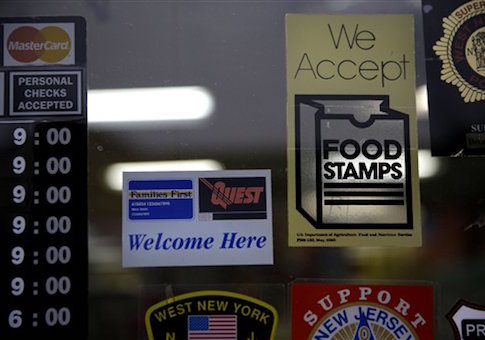Immigrants are more willing to accept government assistance programs than U.S.-born citizens, according to a new online study.
Fifty-three percent of immigrants said they had already accepted welfare or were somewhat willing to accept it, while 48 percent of native-born citizens said the same.
"The [Survey of Income Program Participation] shows that households headed by immigrants use welfare at significantly higher rates than natives, even higher than indicated by other Census surveys," said Steven Camarota, a director of research at the Center for Immigration Studies.
"Overall we found that in 2012 of all immigrants, legal and illegal, 51 percent of households accessed one or more of the major welfare programs, typically two or three at a time," he said. Less than one-third, or 30 percent of native-born households used at least one welfare program in 2012.
Immigrants use food assistance programs and Medicaid at much higher rates than those born in the United States. Forty percent of foreign-born households use food programs, compared to 22 percent of native-born Americans, and 42 percent of foreign-born households use Medicaid compared to 23 percent of natives.
Immigrants continue to use government assistance programs years after arrival. Forty-eight percent of immigrant families have accessed welfare after two decades of being in the United States.
Native-born citizens are more likely than immigrants to work two or more jobs. Twenty-seven percent of native-born individuals say they work multiple jobs while 24 percent of foreign-born workers say the same.
While a majority of both groups thought the economy was headed in the wrong direction, immigrants were more positive about economic issues than native-born citizens. Forty-seven percent of foreign-born individuals thought the economy was going in the right direction, while only 34 percent of native-born citizens said the same.
Thirty-five percent of Immigrants believe that their personal economic situation will improve and 49 percent say it will stay the same. Only 16 percent of immigrants believe their situation will get worse.
Foreign-born individuals are slightly more likely to believe they are willing to achieve the American Dream by starting their own business than the native-born. Seventy-seven percent of immigrants think they already have or are willing to achieve the American Dream, and 70 percent of native-born individuals say the same.
